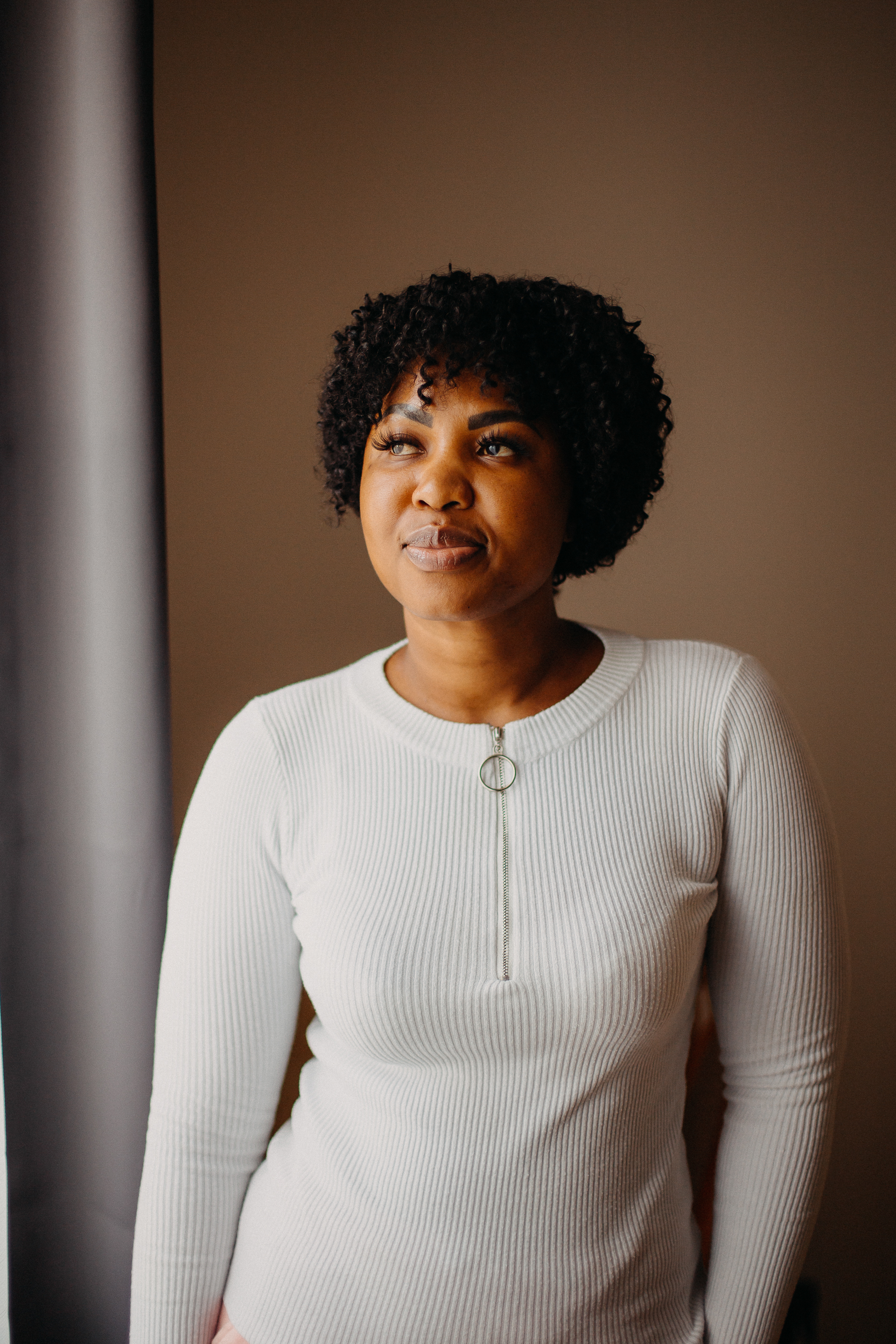Budapest, 23 February 2023 – Ciara opens the door with a big smile on her face. She loves welcoming guests to her historic, but newly renovated apartment on the Buda side of the Hungarian capital. A few determined rays of sunshine cut through the clouds on an overcast day in early January and brighten up the space. Glad to have finally secured her own apartment in October last year, Ciara feels she has found a safe, temporary home.
Back in 2011, her partner’s new job brought Ciara’s family to Zhytomyr, a city in the north-eastern part of Ukraine, for the first time. Leaving their family, friends and home behind in the United Republic of Tanzania hadn’t been easy, but it was a big professional opportunity for her partner and Ciara quickly took the foreign country and its people into her heart.
“The country was great, but at the end of 2013 I moved back to Tanzania while my partner moved to England for another project,” recalls Ciara.
“I was planning to stay with my mom for a while, but I actually missed Ukraine and so I decided to come back.”
In 2016, Ciara returned to Ukraine with her son, Paris. When war broke out on 24 February 2022, the pair were at home in Zhytomyr. It was early morning, her body still wrapped in the arms of sleep when she turned on the radio.
“I didn’t know anything. I called my priest’s wife,” she recalls.
At first, Ciara could not believe it. “I asked her, ‘What do you mean the war has started?’ She repeated ‘THE WAR HAS STARTED. What you see on TV, is happening now, like in an action movie.’’’
Still in shock, she was unsure how to handle the situation. “I really didn't know what to do. But two to three hours later, everybody was leaving,” she says. “I was shocked, I didn't want to leave because everything was in Zhytomyr. My belongings, my investments, my life. I decided to stay. It was the hardest decision of my life.”
Paris was still attending school. The first months of war in Ukraine were very hard. “Life was not good at all, we tried to live normally but every half hour bomb alarms would sound. You would look into people's eyes and feel that life was not the same.”
As a religious person and a regular churchgoer, Ciara often visited the Hungarian Catholic Church in Ukraine, where she met a Hungarian priest named Father Peter.
“He was telling me a lot about his country and the people, and eventually offered his support. That is how I decided to come here,” recalls Ciara. “Hungarians are very welcoming.”
“When I crossed the border with my son, I met staff from the International Organization for Migration (IOM). They connected me with Mátyás, an IOM protection assistant who provided all the necessary information.”

Ciara is from Tanzania. She moved to Ukraine in 2011 with her family but was forced to flee at the end of July 2022 due to the war. Ciara now lives with her 12-year-old son in Hungary and is planning to stay there until the war ends. Photo: IOM
Since the escalation of the war, refugees from Ukraine and so-called third-country nationals (TCNs) like Ciara have fled the country in massive numbers. Over 17 million border crossings from Ukraine were registered by national authorities of six neighbouring countries between 24 February 2022 and 10 January 2023, according to UNHCR. More than 600,000 of them were TCNs according to IOM’s latest report.
In the first year of full-scale war, IOM facilitated the return of 1,765 people of various nationalities, who used to live in Ukraine, to their home countries. As the war enters its second year, the Organization is helping people like Ciara to access a range of social and financial support systems in their host countries.
Mátyás and Bianka, an IOM case worker in Budapest, helped Ciara find a safe place to stay.
“The people there were friendly and helpful. We lived like a family. I could finally sleep,” she recalls. “Bianka helped us a lot. Not only with accommodation, but also with food vouchers, and hygiene items.”

IOM accommodation where Ciara stayed with her son for two months. Photo: IOM
Over the summer, Ciara enrolled Paris in the sixth grade at an international school in Budapest. “He is happy. There are other Ukrainian kids so he's comfortable there. He has Hungarian, Ukrainian, and American friends.”
Ciara has received her residence permit and hopes to find a job soon.
“My plan now is to settle down for some time and visit some places in Hungary.”
Since 24 February 2022, nearly 23,000 Ukrainians and third-country nationals have been assisted by IOM Hungary as part of its emergency response. IOM’s provision of accommodation and assistance for the immediate needs of war-affected people is made possible through the generous support of the German Federal Foreign Office (GFFO) - German Humanitarian Assistance.
This story was written by Anna Gergely, Media and Communications Officer with IOM Hungary, agergely@iom.int.
If you are interested in donating to Ukraine relief efforts, please visit IOM's fundraising page.



